These are two SpringBoot projects. A is for api service providing, and B is consuming A's service via rest template. It is OK while transferring string. While transferring Excel file via byte array, B receives a string, not byte array.
The api method in A.
@GetMapping(value = "/export")
@ResponseBody
public HSResult exportFile(@RequestParam(value = "fileName", defaultValue = "-1") String fileName,
@RequestParam(value = "provider", defaultValue = "-1") String channelId,
@RequestParam(value = "fileStatus", defaultValue = "-5") int fileStatus,
@RequestParam(value = "cdate", defaultValue = "") String cdate,
HttpServletRequest request, HttpServletResponse response) {
// ...... some logic code
InputStream inputStream=new FileInputStream(fullPath);
long fileSize=new File(fullPath).length();
byte[] allBytes = new byte[(int) fileSize];
inputStream.read(allBytes);
result = HSResult.build(200, "exportFile success",allBytes);
return result;
}
The consuming method in B.
public ResponseEntity downLoadFile(int businessType, String fileName, int fileStatus, HttpServletResponse response) {
//.......
ResponseEntity<HSResult> responseEntity = restTemplate.getForEntity(url, HSResult.class);
HSResult apiResult = responseEntity.getBody();
byte[] fileData = (byte[]) apiResult.getData();
//.......
}
A reads an excel file from disk into a byte array before transferring.
But while receving the result in B side, it is string like UEsDBC0AAAAIADhMuVAKVjbC//////////8LABQAX3Jl
Why did this happen? And how to transfer byte array through rest template correctly? Thanks.
PS: The class of HSResult
public class HSResult {
private Integer status;
private String msg;
private Object data;
//gets and setters
//......
}

